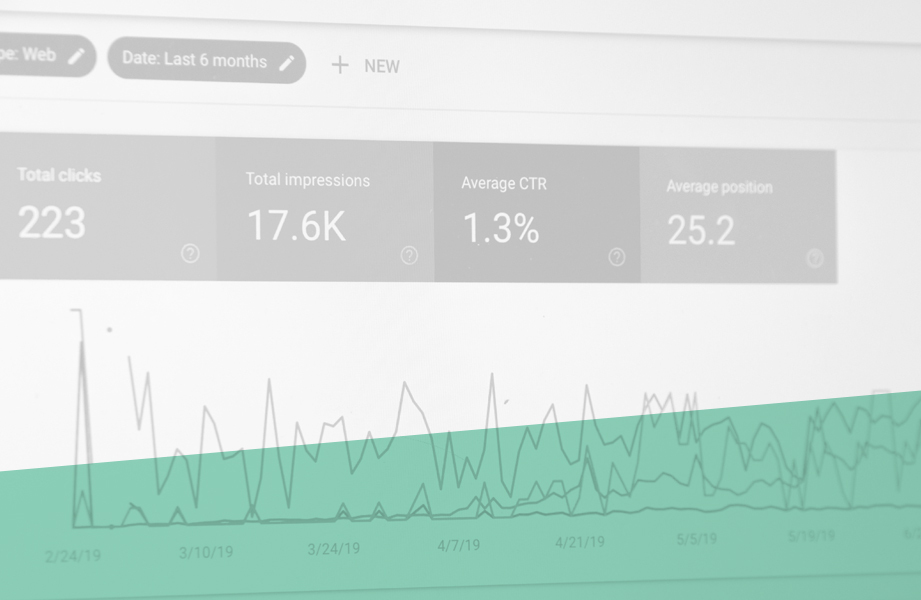
Marketing is important to the success of any business — including law firms — but how do you track marketing? Key Performance Indicators (KPI) are a great barometer for law firms to see where they excel and where they may be able to improve their client satisfaction and marketing strategies. We want to help you and your law firm succeed here at Civille and knowing the right marketing KPIs your law firm should track will help get you started.
Here is a closer look at important KPIs that your law firm should track.
READ MORE: The Importance of Reviews and Testimonials for Your Law Firm
What Are the Most Important Marketing KPIs for Your Law Firm to Track?

When you run a law firm, there is no shortage of KPIs and metrics for you to track and analyze. With data on your side, you have the ability to make informed decisions that apply to your law firm and are based on facts. Many KPIs that are important to law firms include customer satisfaction metrics like Net Promoter Score (NPS) and Customer Satisfaction Score (CSAT) — but when it comes to finding new clients and reducing costs, marketing KPIs may prove to be valuable data to track for your law firm.
Marketing metrics can be put into a few different categories that highlight website performance, lead generation and conversions, and marketing performance. Here are a few of the most important marketing KPIs that your law firm may want to consider tracking to help improve marketing and online visibility with potential clients.
Customer Acquisition Cost (CAC)
How much does it cost to bring new clients to your law firm? This should be an important marketing KPI for your law firm to track. This key metric measures how much money is spent to acquire each new client over a set period of time and can shine a spotlight on marketing spend like paid ads and employee hours spent on client case reviews and more.
CAC = Marketing Costs ÷ Total Number of New Clients Acquired
Landing Page Conversion Rates
Landing Page Conversion Rates is a KPI that provides data on both website performance and how effective your landing pages are at converting potential clients. This data will track how many online visitors arrive on a specific page and take action — like filling out a contact form or requesting a case review. Lead conversion and lead generation on your website are a key element of adding new clients for your law firm and turning those website visitors into clients. This metric will track aspects of those conversions.
Conversion Rate = (Total Conversions ÷ Total Visitors) x 100
Cost Per Lead (CPL)
How many leads are submitted on your law firm’s website each month? How much did each of those leads cost? Do you need to invest more funds into creating leads? Cost Per Lead is an important KPI and metric that can be tracked to put a number on each potential client lead. If you want to generate more leads and see how much of your marketing spend is dedicated to leads, this data will provide the insight you need.
CPL = Total Marketing Spend ÷ Total Number of New Leads
Engagement Rate
KPIs that measure how engaged potential clients are with your website, your paid ads, or your social media posts can provide valuable information. Engagement can be measured with impressions to see how many people see your content or with a specific audience like social media followers or subscribers. These metrics will illustrate how well your website, ads, or social media content are received by potential clients and can include contact form submissions. When your law firm has a high number of online or social media followers and yet a low number of form submissions or other engagement metrics, it can indicate an issue with your marketing.
Impression Engagement Rate = (Total Post or Ad Engagement ÷ Total Impressions) x 100
Post Engagement Rate = (Total Post or Ad Engagements ÷ Total Followers) x 100
Referral Traffic
An estimated 38% – 40% of clients choose a law firm based on referrals and referrals are a key component for many successful law firms. This makes Referral Traffic an important KPI to track for your law firm. Referrals In and Referrals Out are different sides of the same coin for law firms to track and highlight how effective your law firm may be with its networking strategies. The expectation when tracking referrals is that the incoming and outgoing referral traffic are in a similar range — you don’t want to have a large number of outgoing referrals to only get a few incoming referrals.
READ MORE: The Most Important Google Analytics Metrics for Your Law Firm
How To Choose the Right Marketing KPIs to Track
We have only highlighted a few of the potential KPIs for you to track at your law firm that can help you upgrade your marketing and website performance. With that being said — what works for Law Firm A may not work for Law Firm B when it comes to tracking KPIs. This makes it important to take a closer look at your law firm and your specific goals.
- Set Your Goals – The first step when you choose to track marketing KPIs is to set your goals. This will help you establish which KPIs are the most important to your success. Marketing KPIs will track how your marketing budget can be adjusted. Customer satisfaction KPIs provide an overview of the customer experience with your law firm. Which KPIs you choose to track can be established when you set your goals.
- Evaluate Current Performance – It is important when you track KPIs that you evaluate your current performance in those metrics and set benchmarks that you hope to achieve with those specific KPIs. This will allow you to track your progress and continue to achieve new goals.
- Choose Versatile KPIs – Marketing KPIs are important to how you promote your business and spend money to earn new clients — but you may want to consider tracking other KPIs. Net Promoter Score and Customer Satisfaction Score KPIs are important customer service and customer experience KPIs that may provide additional value alongside marketing KPIs.
- Don’t Overdo It – When you begin to track KPIs and other performance metrics, it is important that you don’t try to manage and analyze too many KPIs. Find the KPIs that are the most important to you and have the most impact on your law firm and start there.
READ MORE: Top Legal Trends Law Firms Should Watch in 2025
If you are looking for ways to improve the marketing performance of your law firm, Key Performance Indicators can pull back the curtain on your marketing strategies and show you what is working best and what may need to be adjusted. We hope that this list of marketing KPIs your law firm should track has helped shed some light on the value and impact of KPIs for your law firm.
Contact Civille today to learn more about our custom law firm websites and lead enhancement services!





